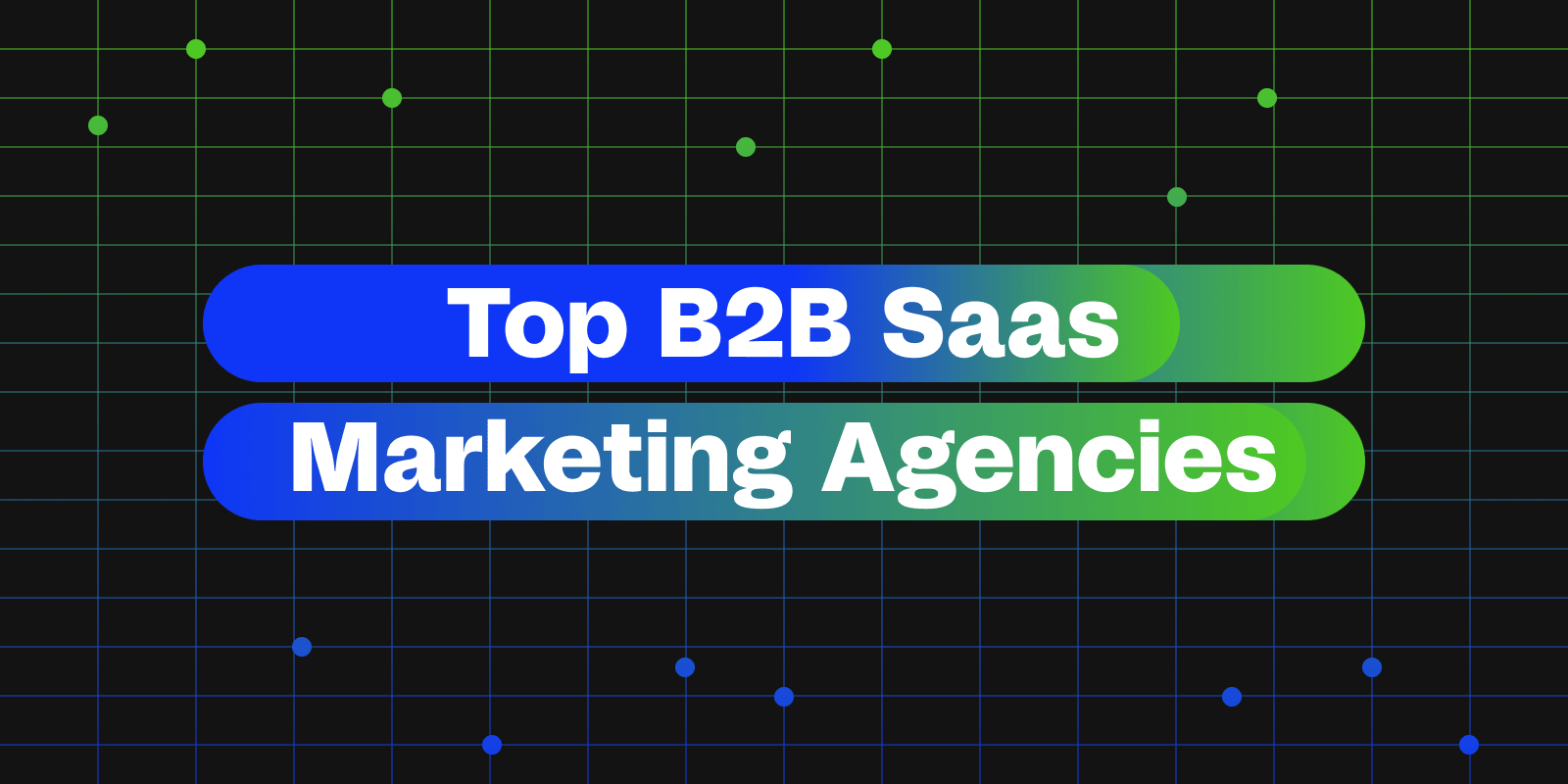In an era where the software as a service (SaaS) industry is booming, distinguishing your SaaS company from the competition organically has never been more pressing. With barriers to entry lowering, the market landscape is now a mosaic of solutions, each vying for the top spot on search engine results pages (SERPs). The overarching goal for any SaaS business is clear: to stand out in this saturated market. But how?
SaaS companies face numerous obstacles when attempting to enter a crowded industry. It’s crucial to carve out a distinct niche and successfully express your value in the face of intense competition. You have to be clear about what makes your solutions unique. Keeping up with SEO can be challenging due to rapidly evolving user bases and shifting technology like Google Core Updates and AI.
The bright side of these challenges is that SEO for SaaS companies has enormous potential. With the right SEO work, a SaaS company can achieve organic reach they had only dreamed of, propelling them into the public eye without paying for costly sponsored search advertising. One of the most effective ways to attract new users, guide them from the top of the funnel, and keep them as devoted, long-term users is still through organic search.
Understanding the SaaS Buyer’s Journey and SEO’s Role
It takes skill to walk a prospective client through the buyer’s journey with ease, especially in the SaaS industry, where choices are frequently made after thorough and thoughtful consideration of all available options. From the moment a potential client experiences a pain point to making the final decision and beyond into customer loyalty and advocacy, SEO is crucial at every stage of this journey. But how exactly does SEO affect these phases?
Stages of the SaaS Buyer’s Journey
The journey generally commences with the Awareness stage, where a prospective user first acknowledges a problem or a need. Next, they enter into the Consideration stage, comparing available solutions to find the best fit. The Decision stage follows, with the prospect ready to make a purchase. Finally, the critical Post-purchase stage, which, if navigated successfully, transforms customers into long-term advocates for the SaaS product.

SEO Impact on Each Journey Stage
1. Attracting prospects with keyword-targeted content: Potential buyers are looking for knowledge, not things, at the awareness stage. They look for instructional whitepapers, e-books, and blog content using search engines. Your blog posts appear as a lighthouse of help, guiding prospects toward your solution by focusing on pertinent keywords that match the searchers’ queries.
2. Engaging prospects with comparison and case study content: Prospects are aware of their needs as they enter the contemplation stage and are comparing providers to see who can provide the best fit. With the use of SEO, your SaaS company may display the advantages of your product over rivals by bringing up comparison articles, in-depth case studies, and professional testimonials that correspond with mid-funnel search inquiries.
3. Converting prospects with high-intent content: Prospects are probably looking with high intent when they’re ready to buy. By optimizing for terms that clearly convey a transactional message (such as “buy,” “demo,” “trial,” or “pricing”), you may drive traffic to sign-up pages or product demos, which provide information that can ultimately seal the deal.
4. Retaining customers with helpful resources: After a purchase, the adventure continues. Valuable SEO-driven content such as support articles, FAQs, webinars, and community forums help consumers get the most out of the SaaS product and increase customer happiness and loyalty.
How AI is Changing Search Behavior in the SaaS Funnel
Top of Funnel (Awareness)
AI is reshaping how users discover SaaS products at the top of the funnel by encouraging more conversational and intent-driven searches. Instead of typing in short, keyword-heavy phrases, users are now asking broader, more natural-language questions like, “What are the best tools for remote team collaboration?”
This shift is fueled by tools like ChatGPT, Google’s AI Overviews, and Perplexity AI, which aggregate and summarize information across the web. As a result, users spend less time clicking through individual websites and more time interacting with AI-curated content. This also contributes to a rise in zero-click searches, where users get the answers they need directly on the search results page.
For SaaS companies, this means that optimizing content for featured snippets, structured data, and AI visibility is more important than ever.
Middle of Funnel (Consideration)
As prospects move into the consideration phase, AI is playing a growing role in how they evaluate SaaS options. Potential buyers are using AI tools to compare features, pricing, and customer experiences, asking questions like “Compare Notion vs. ClickUp for project management” and receiving synthesized insights in seconds. This behavior shifts the emphasis away from long-form sales pages and toward bite-sized, high-value content that AI can easily surface and summarize.
Additionally, AI systems often pull information from a range of sources, including forums, product review sites, blogs, and social platforms like Reddit and YouTube. This means your brand’s visibility can’t rely solely on your website. You need to maintain a strong and consistent presence across all the channels AI references.
Bottom of Funnel (Decision)
At the decision-making stage, AI is shaping how users finalize their SaaS choices through personalized suggestions and trust signals. AI tools are capable of recommending specific software solutions based on individual user needs, past queries, and behavior.
Additionally, how your brand is represented in AI-generated content can directly influence buyer perception. Brands frequently mentioned in positive contexts, whether through reviews, thought leadership, or user discussions, are more likely to show up in AI summaries and recommendations.
Internally, many SaaS companies use on-site AI tools like chatbots or custom GPTs to guide prospects through the final steps, answering technical or pricing questions in real time. This streamlines the conversion process and can significantly reduce friction at the bottom of the funnel.
Proven SEO Strategies for SaaS Market Differentiation
It’s no longer enough to merely practice SEO fundamentals if you want to stand out in the crowded SaaS market. Your business needs to use innovative and proactive tactics. Let’s examine a few of these tried-and-true strategies that have worked well for SaaS companies looking to stand out in the organic search market.
4 Crucial SEO Strategies for SaaS
1. Content diversification: Investing in a wide range of content formats, including podcasts, webinars, infographics, and blog entries, helps satisfy different customer preferences. This expands the number of touchpoints with your target audience and strengthens your SEO efforts by communicating the value of your SaaS product in a variety of formats, to a wider audience.
2. Long-tail keyword targeting: Astute SaaS companies concentrate on long-tail keywords that encapsulate the particulars of their solution rather than battling for highly competitive phrases. This approach frequently results in higher-quality traffic conversions and establishes the business as a provider of solutions for specific client pain areas.
3. Backlink acquisition: Getting high-quality backlinks from relevant and trustworthy websites remains essential to SEO. This could entail joint ventures, guest posting, and/or providing a thought-leadership resource that other websites link to and credit.
4. User-generated content: In addition to enhancing trust, highlighting reviews, testimonials, and customer stories also has a positive impact on SEO. UGC can increase search engine exposure by providing a consistent flow of new, keyword-rich content.
Case Study: Buffer’s Diverse SEO Strategy

Buffer, a social networking platform, is a prime example of this approach in action. They’ve implemented a strong, varied SEO plan with an emphasis on openness and participation.
1. Transparency through case studies and reporting: By creating thorough case studies and disseminating performance reports, Buffer leads with integrity. This degree of openness draws backlinks and strengthens the authority of the brand by appealing to a readership that looks for reliable information.
2. Active engagement across media platforms: Blogging, podcasting, and social media involvement are all part of Buffer’s content strategy. This makes it possible for businesses to tackle a wide range of SEO initiatives that, when taken as a whole, boost their platform’s organic traffic and overall online visibility.
Implementing comparable tactics specific to your SaaS service’s features can position your business to lead in organic search rather than just compete. Remember that these aren’t one-off strategies; they call for steady work and quick adjustments to the always-changing SEO environment.
The Power of Content Marketing and Thought Leadership in SaaS SEO
The power of content marketing in conjunction with thought leadership can be the decisive factor in making sure that your brand doesn’t just enter the race, but leads it in the very competitive world of SaaS markets from both a search and AI visibility perspective.
These are essential components of any progressive SaaS-focused SEO strategy, not just catchphrases. But how do these essential components transfer into SEO effectiveness, and what does it look like to include them in your content strategy?

Role in SEO Performance
1. Attracting, retaining, and converting users: Thought leadership and creative content marketing work together to draw in and hold the interest of potential leads. Users are more likely to become devoted clients when they perceive the value in the material you offer. This concoction of authoritative and educational material has the power to change consumers’ perceptions of SaaS companies, converting inactive readers into ardent supporters.
2. Establishing credibility through expertise sharing: Not only does sharing knowledge via in-depth blog entries, perceptive assessments, and forward-looking whitepapers highlight your brand’s expertise in the field, but it also establishes credibility.
Content creation is a crucial component of improving your SEO efforts and organic search exposure. Search engines like high-quality, reputable material and reward it with higher rankings.
Incorporating Thought Leadership into a Content Strategy
1. In-depth industry guides: Your SaaS company can demonstrate its breadth of knowledge and increase search volume and ranks by creating in-depth guides addressing industry problems, trends, or breakthroughs. This also makes it easy to organically implement relevant keywords in your website content.
2. Expert insights and whitepapers: These are essential tools for integrating a SaaS product into broader industry discussions, not only for displaying expertise. A positive feedback loop of improved page SEO and higher organic exposure is often created by this kind of material, which also encourages other experts to share, cite, and interact with your work.
Case Study: Moz’s ‘Whiteboard Friday’ Series

One example of the synergy between content marketing, thought leadership, and SEO is Moz’s ‘Whiteboard Friday’ series. The video segments, often hosted by industry luminaries, break down intricate SEO topics into digestible chunks.
1. Video content and expert hosting: This not only simplifies difficult content but also shows Moz’s dedication to empowering the target market for their SaaS business. By doing these workshops, they produce material that organically incorporates numerous semantic variants and pertinent keywords into a structure that encourages high levels of interaction.
2. Integration of keywords and engagement: With the help of important ranking factors and pertinent internal linking, Moz ensures every video description, transcript, and related post is search engine optimized. This benefits search engines and people by enabling the website to rank for relevant keywords and bolstering Moz’s robust organic search presence.
Through thought leadership and content marketing, your SaaS company can establish a strong online presence that promotes natural growth. This strategy goes beyond creating content to establishing a dependable channel for user acquisition and retention through developing an authoritative brand voice that connects with your SaaS audience and attracts search engines.
Technical SEO Essentials and Pitfalls for SaaS Companies
Technical SEO cannot be an afterthought if you want to compete naturally in a market bursting with SaaS solutions. It’s a crucial component of SEO, supporting the entirety of a business’s online presence and having a direct impact on user experience and search engine rankings.
Let’s examine the essential elements and typical mistakes made in the context of technical SEO in more detail.
The Foundation of Effective Technical SEO
Technical SEO sets the stage for all your online interactions. Without it, even the most compelling content may falter.
1. Website Responsiveness and Optimization: In a world where mobile devices are prioritized over other devices, a responsive website guarantees a smooth user experience across all platforms. Google’s preference for mobile-first indexing emphasizes how crucial responsiveness is for SaaS businesses looking to compete naturally.
2. Importance of Site Speed and Structured Data: Not only is site speed important for user convenience, but it also plays a big role in rankings. They both work in tandem with structured data to assist search engines in comprehending the context of your content and are essential for improving SERP rankings.
3. Mobile-Friendly Interface: It’s imperative to have a mobile-friendly UI because mobile searches are so common, and Google uses mobile-first indexing, which means it prioritizes the mobile version of your website when determining search rankings. Slow load times, difficult navigation, and unreadable text leads to higher bounce rates and lower engagement, both of which negatively impact SEO performance.
Common Technical SEO Pitfalls to Avoid
For SaaS websites eager to climb the SERPs, steering clear of certain technical pitfalls is crucial.
1. Site Structure Negligence: Search engines can more easily crawl and index your website when it has a well-organized site layout. Ignoring this can result in material going ignored, squandering time and resources spent on content creation and on-page SEO optimization.
2. Overlooking Regular Technical Audits: Regular audits are necessary to catch and rectify SEO issues like broken links or duplicate content. Ignoring these audits can leave your SaaS company’s website vulnerable to slips in rankings.
3. Redirects and Indexation Errors: Poorly managed redirects can lead to the loss of valuable link equity and indexation errors that prevent pages from appearing in search results. Both have detrimental effects on the visibility and authority of a SaaS website.
Case Study: Ahrefs’ Display of Technical SEO Excellence

Ahrefs, an industry leader in SEO tools, embodies best practices for technical SEO.
1. Site Speed and Mobile Responsiveness: Acknowledged for their lightning-fast user interface, Ahrefs ensures that users and search engines can access their content without delays. This emphasis on speed and mobile responsiveness directly contributes to their high organic ranking.
2. Regular Site Audits to Address Issues: The Ahrefs platform itself is a tool for SEO auditing, and they practice what they preach, conducting regular audits to identify and address any SEO shortcomings. This proactive approach keeps their site at maximum health.
3. Extensive Knowledge Base Implementation: Ahrefs capitalizes on its vast knowledge base to create an educational hub that not only adheres to technical SEO best practices but also enhances the user experience by providing valuable, easily accessible information.
By mirroring Ahrefs’ commitment to technical SEO, other SaaS companies can lay a solid foundation for organic search success. Mitigating common technical pitfalls and optimizing the technical structure of a website is not only conducive to better rankings but also ensures a frictionless experience that can significantly boost conversions and customer satisfaction.
When you take care of the technical foundation of your SaaS company’s website, you’re essentially strengthening the base of your SEO fortress, making it strong enough to withstand the demands of a crowded market and continue to reliably serve your target audience.
Measuring the Impact: KPIs for SaaS SEO Campaign Success
The brilliance of an SEO campaign is truly understood when its results are measured against concrete metrics. SaaS companies, in their pursuit of organic ascendancy, must keep close tabs on key performance indicators (KPIs) that reveal the health and success of their SEO efforts. In this section, we will scrutinize the KPIs that spell triumph and how they align with the overarching business goals.
Essential KPIs for Assessing SEO Success in SaaS
1. Organic Traffic and Conversion Rates: The flow of organic traffic is crucial to determining how effective your SEO is for SaaS companies. It’s a sign of improved visibility and more commercial opportunity. Conversion rates provide a window into how well traffic converts into targeted activities, such as sign-ups, trials, or purchases, in tandem with traffic.
2. Keyword Ranking Progression: The effect of your SaaS company’s SEO strategy can be seen in the current state and trending direction of your keyword rankings. You may assess the level of competition and improve your strategy for acquiring your target audience by monitoring your content’s position in the search engine results pages (SERPs) for pertinent keywords.
3. Backlink Quality and Quantity: Backlinks from reputable sites are the cornerstone of off-page SEO since they convey relevance and trust to search engines. A strong backlink profile boosts your domain authority and possibilities for organic ranking because it shows that people appreciate your content.
4. Engagement Metrics and Revenue Impact: Engagement metrics such as average session duration, pages per session, and bounce rate provide insight into how compelling and relevant your SaaS product’s content is. Moreover, connecting these metrics to revenue growth helps in quantifying the direct financial impact of your SEO campaigns.
Aligning KPIs with Business Goals
1. Importance of Customer Acquisition Cost (CAC): When comparing SEO’s return on investment to the price of bringing in a new client, it becomes even more relevant. SaaS companies may be able to reduce their CAC by optimizing for organic search, which would increase their marketing effectiveness and profitability.
2. Understanding Customer Lifetime Value (CLV): It’s crucial to use CLV as a gauge of long-term customer value and profitability to assess SEO’s contribution in its entirety. Increased CLV as a result of organic growth fueled by SEO suggests a viable and successful company strategy.
Case Study: Slack’s Comprehensive Approach to SEO Metrics

Slack, the celebrated collaboration tool, exemplifies a comprehensive and nuanced approach to SEO KPI analysis.
1. Tracking a mix of engagement and performance KPIs: Slack meticulously monitors organic traffic growth, engagement metrics, and keyword rankings. They emphasize understanding user behavior on their site, seeking insights that refine their SEO strategy for long-term improvement.
2. Connecting SEO metrics to CAC and CLV for ROI evaluation. By measuring SEO performance against critical financial KPIs like CAC and CLV, Slack gains a deep understanding of the ROI of their SEO investment. Continuous evaluation helps them adapt and maintain an edge in the competitive SaaS market, proving that sustained SEO efforts can play a pivotal role in propelling a SaaS company’s growth trajectory.
The Bottom Line
Sensitive to the dynamic currents of the SaaS sector, SEO for SaaS companies is a science of adaptation, where the ultimate goal is to leverage a well-oiled SEO machine that drives organic growth and complements the financial aspirations of the business.
With an intelligent approach to measuring KPIs, SaaS businesses can glean actionable insights from their data, charting a course for SEO strategies that are not just traffic generators but also revenue boosters. By stitching engagement with economics, SaaS SEO becomes an indispensable lever in the machinery of a successful, forward-moving industry player.
Ready to turn your SEO strategy into a growth engine? See how NoGood can help you build an SEO plan tailored to your business.





